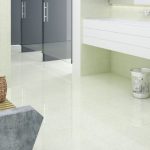Have you recently moved into a home with a pool? It must be tough getting the kids out when it’s time for dinner.
Pools are one of the best things you can have at home, especially for families with kids. Many kids can recount some of their fondest memories in their backyard pool.
Long days can make summer vacation hard for both kids and parents, but a pool out back is the perfect solution. But if this is your first pool, you’re probably wondering about swimming pool chemicals
You need to keep the pool clean, right? Otherwise, nobody is going to swim in it.
Swimming pool chemicals safety is important. You need to use the right products and follow the instructions for safe, pleasant swimming.
So how do you do that, and what are the best swimming pool chemicals? Keep reading for all the answers.
Why It’s Important to Keep Your Pool Clean
Water may look clear and clean from the naked eye, but you never know what is living below the surface. When water is “stuck” in a pool, it has nowhere to go.
Unlike a river or stream, pool water is still. This creates an environment that allows pesky bacteria, bugs, and algae to thrive unless properly treated.
As a result, chemicals need to be added to the pool water in order to disinfect and maintain clear, safe water. This keeps you safe while swimming and preserves the pool itself.
It’s also important to maintain your pool filter. The filter works to remove small particles in the water that is either blown in from the wind or carried in by our bodies.
Keep the filter clear of large debris such as leaves and toys to ensure it does its job.
Balancing the Pool Water
When it comes to using chemicals in the pool, your goal is to destroy and prevent bacteria, algae, and harmful microorganisms from living in the water. But keeping your water balanced is essential.
If you add too many chemicals to the pool water, it could raise or lower the pH level to uncomfortable levels. Doing so could cause irritation to the eyes, throat, and skin while swimming.
It’s important to keep the pH level of your pool water as close to 7.4 as possible as this is the level found in your eyes and mucous. This will be the most comfortable level to swim in, even for hours at a time.
You’ll need to test your water regularly using a water testing kit. This is especially important after long swimming sessions or rain when the water levels could be impacted.
Best Swimming Pool Chemicals
Using chemicals in the pool is the most important step to maintaining a safe, healthy pool to swim in. But what are the best swimming pool cleaners to use? There are a lot available.
Most people associate pools with chlorine. Chlorine is widely used and very affordable. It destroys many known pathogens often found in water. In fact, 98% of tap water in America is treated with chlorine in order to prevent contamination and illness.
Looking for cheap swimming pool chemicals? Chlorine is your best bet. There are different types of chlorine cleaners. Trichlor, for example, is often used in tablet form and slowly and continuously disinfects the water.
This is what many people place in a chlorinator, which automatically dispenses the chemical.
Dichlor, on the other hand, is a stronger chemical that is used to “shock” the pool, cleaning the water after a long period of neglect, after heavy use, or after large amounts of rain.
This takes your water from a very unclean state and brings it up to par in a short time.
Organic Swimming Pool Chemicals
For those looking for organic and safe swimming pool chemicals, there are more natural options that are unlikely to cause any irritation when used properly.
Hydrogen peroxide is a safe, natural chemical. We often buy this from the pharmacy or grocery store to treat minor cuts and scrapes.
But did you know that your body produces hydrogen peroxide on its own? It’s also found in rainwater. So your body knows how to handle this substance more than chlorine, which can cause irritation.
This can be just as effective of a pool cleaner as chlorine. It also benefits our skin, hair, and cells. If you are currently using chlorine, switching is very easy as you can start using hydrogen peroxide even while there is chlorine in the pool.
Just be sure to get peroxide strong enough to treat pools—35%, as opposed to the 3% hydrogen peroxide, found at the pharmacy.
Other Swimming Pool Chemicals
Borates is another popular pool cleaner. It works to keep pH levels balanced and functions well with temperature changes, making it better suited for heated pools.
One of the reasons we experience dry, itchy skin or red eyes after swimming is due to hard water which contains high amounts of dissolved minerals. Borates work to soften the water, making it more enjoyable on the skin.
It also works hand in hand with chlorine. In fact, most borates contain a chlorine stabilizer, which prevents the chlorine from dissipating in direct sunlight, a weakness found in chlorine use.
Muriatic acid is another chemical used for pool cleaning as it works to effectively lower pH levels when needed. This chemical is strong and must be handled with care.
What Else Do You Need to Keep Your Pool Clean
A functioning filter and the use of pool chemicals are the most important aspect of pool cleaning. But there is still more to do.
You’ll want to have a long-handled brush to clean large debris out of the pool. This is best done daily to prevent a clog in the filter.
You’ll also want a long-handled pool brush to scrub the sides of the pool to prevent buildup. This should be done every couple of days.
A Clean Pool Is a Happy Pool
Pools provide opportunities for endless joy and countless memories. But swimming pool chemicals need to be added and maintained regularly.
Because pools require daily and weekly attention, many pool owners have cleaners service their pool on a regular basis. If you don’t have time to do it yourself, this is your only option.
Looking for more home and yard advice? Be sure to check out more on our blog today.



